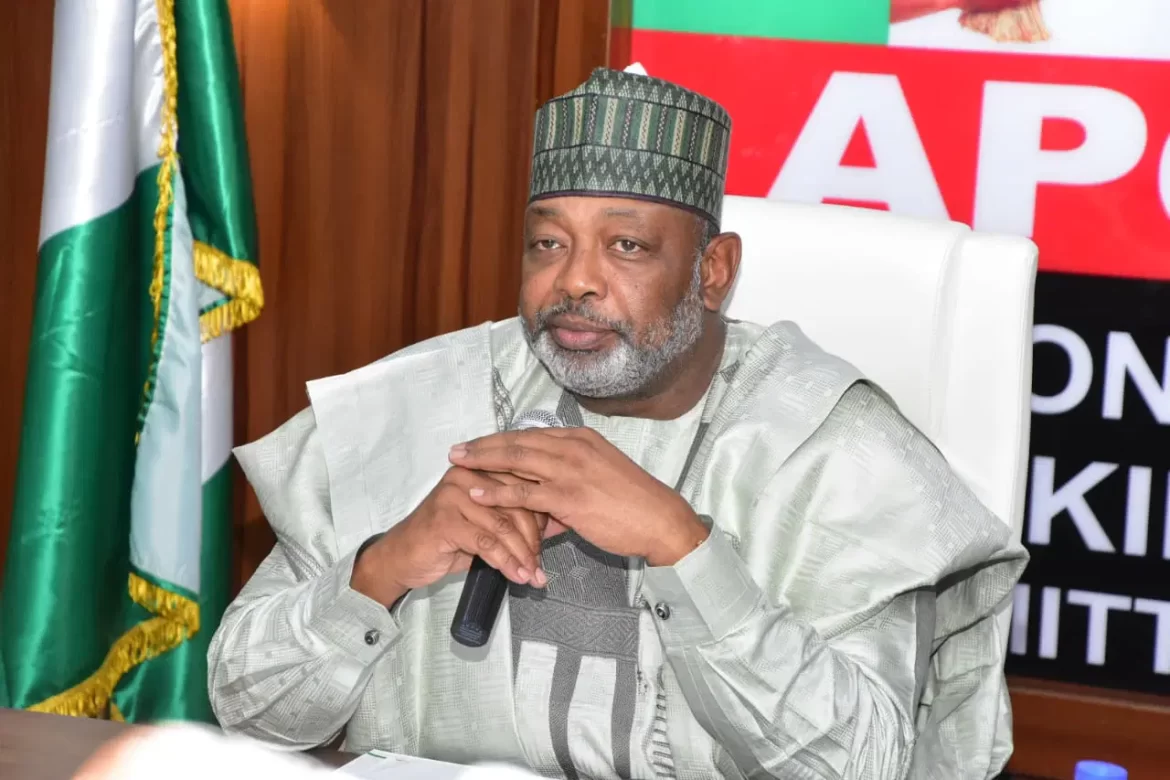707
By Daniel Adaji
The Minister of Agriculture and Food Security, Senator Abubakar Kyari, has called for stronger partnerships and stakeholders’ support to scale up the cultivation of rainfed wheat across Nigeria.
The minister said the move will help the country achieve self-sufficiency, reduce import bills, and strengthen food security.
Kyari made the call during the Second National Rainfed Wheat Farmers’ Field Day held over the weekend in Kuru, Jos, Plateau State.
In a statement on Monday, he emphasised that the development and successful cultivation of rainfed wheat varieties mark a turning point in Nigeria’s agricultural journey.
“The development and successful cultivation of rainfed wheat in Kuru is nothing short of transformative. It means that wheat production is no longer confined to irrigated zones,” he said.
According to the Minister, the new climate-resilient wheat varieties can now be cultivated in highland regions such as Jos, Mambila, and Obudu in Plateau, Taraba, and Cross River States respectively — during the rainy season, and in a manner that is both sustainable and profitable.
“This innovation opens the door to a future where Nigeria’s wheat demand can be met by our own farmers and grown on our own soil,” he said, describing the breakthrough as “a bold step toward achieving food and nutrition security for our great nation.”
Kyari commended the Lake Chad Research Institute (LCRI) for developing the rainfed wheat varieties, hailing the innovation as a reflection of Nigerian ingenuity and scientific excellence.
He reaffirmed President Bola Ahmed Tinubu’s commitment to prioritizing agriculture as a central pillar of Nigeria’s economic transformation and national security strategy.
“The President recognizes that no nation can be truly sovereign unless it can feed itself, employ its youth, and create prosperity from its land,” Kyari said.
“Agriculture has therefore been elevated from a development programme to a presidential priority, driving food security, economic diversification, and inclusive growth,” he added.
The Minister outlined the Federal Government’s comprehensive agricultural renewal plan anchored on mechanization, input access, credit expansion, post-harvest management, and strategic partnerships designed to unlock productivity across agricultural value chains.
He disclosed that through collaboration with development agencies, private investors, and state governments, the government is scaling up rainfed wheat cultivation from pilot fields like Kuru into “hundreds of thousands of hectares nationwide.”
“We are ensuring farmers have access to certified seeds, modern mechanization services, and reliable market linkages, making wheat production profitable and sustainable,” he said.
Kyari highlighted key components of the Renewed Hope Agenda in agriculture, including the Renewed Hope Mechanization Initiative, which has already deployed over 2,000 tractors and combine harvesters nationwide.
He also mentioned affordable financing for farmers, the recapitalization of the Bank of Agriculture (BoA), and the operationalization of the National Agricultural Development Fund (NADF) to provide sustainable funding for agricultural investments, value-chain infrastructure, and innovation.
Appealing to partners, development agencies, private sector actors, and state governments, Kyari called for collaboration to expand the success of the rainfed wheat initiative.
“I invite you to join us in scaling up this success. Together, we can build agro-industrial value chains that create jobs, reduce imports, boost national income, and move Nigeria from importing billions of naira worth of wheat annually to becoming self-sufficient — and ultimately, exporters of quality Nigerian wheat,” he stated.



